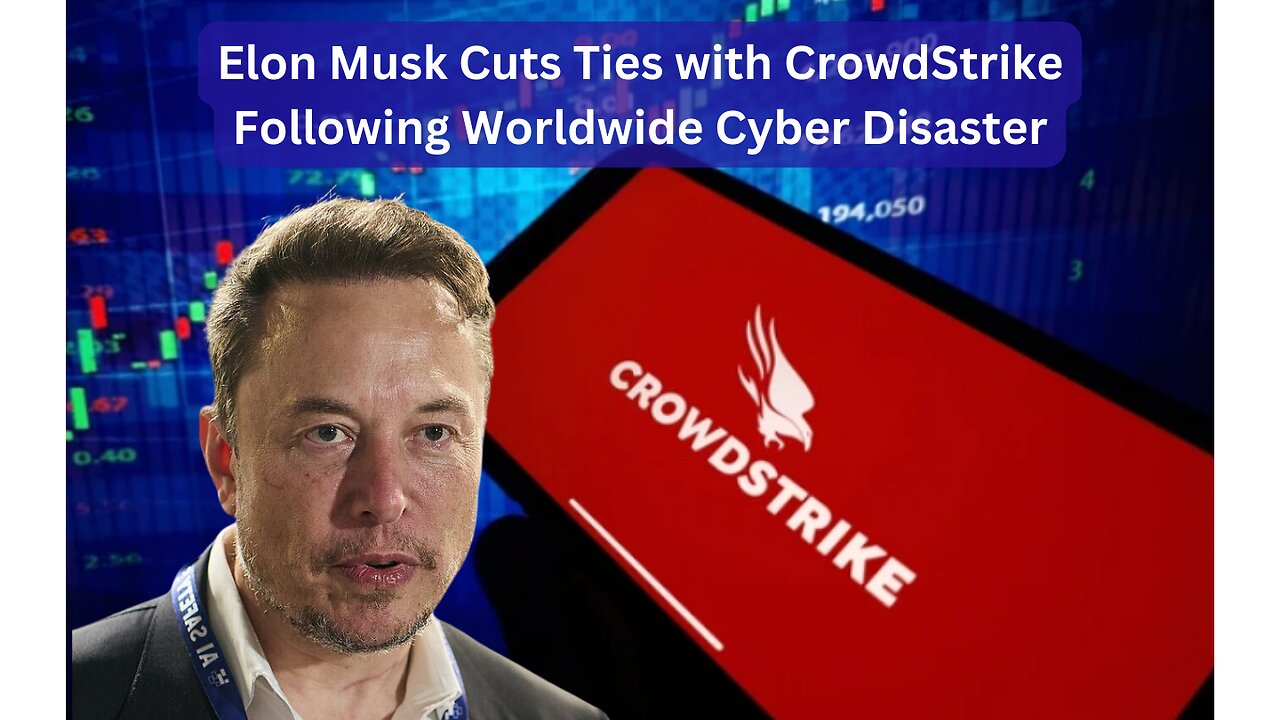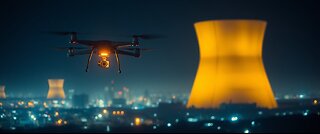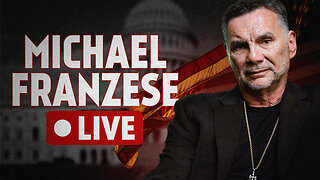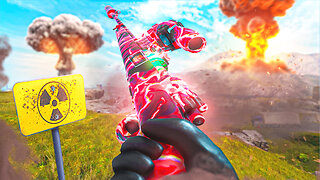Premium Only Content

Elon Musk Cuts Ties with CrowdStrike Following Worldwide Cyber Disaster
Billionaire Big Tech mogul Elon Musk recently announced on X, formerly Twitter, that he has removed CrowdStrike cybersecurity software from all his companies' systems, including SpaceX, Tesla, X, xAI, The Boring Company, and Neuralink. This decision followed a disastrous July 19 update that caused Windows systems to crash and display the blue screen of death, disrupting operations in airports, banks, hospitals, broadcasting networks, and many other industries, affecting 8.5 million computers worldwide.
Responding to podcast host Jason Calacanis' query about CrowdStrike's rollout procedures, Musk confirmed the complete removal of the software from all his systems to prevent further issues.
CrowdStrike admitted that its Falcon Sensor threat-monitoring product caused the global chaos and crashed Microsoft's Windows operating systems. As a result, CrowdStrike shares dropped by about 10 percent, while Microsoft shares declined by half a percent.
"We understand the profound impact this has had on everyone. We know our customers, partners, and their IT teams are working tirelessly, and we’re profoundly grateful," CrowdStrike stated. "We apologize for the disruption this has created."
"Friday's global tech outage is an example of an unforeseen event that market participants always fear but don't frequently think about," said Glen Smith, chief investment officer at GDS Wealth Management. "While there are sizable declines in the stocks of the individual companies that are closest to this tech outage, we expect the broader markets to look past Friday's outage."
Microsoft CEO Satya Nadella wrote on X: "Yesterday, CrowdStrike released an update that began impacting IT systems globally. We are aware of this issue and are working closely with CrowdStrike and across the industry to provide customers technical guidance and support to safely bring their systems back online."
Musk also commented on the post, noting that the IT disruption "gave a seizure to the automotive supply chain."
The outage also caused delays in FedEx and United Parcel Service deliveries. Bloomberg reported substantial disruptions in FedEx's networks due to third-party issues. Although contingency plans were implemented, delays were still expected. UPS stated that some of its computer systems were affected but managed to minimize interruptions, with planes continuing to operate and drivers still on the road.
Flight tracking website FlightAware reported nearly 1,500 delayed flights and 385 canceled flights. The FAA stated it was closely monitoring the technical issue affecting U.S. airlines' IT systems and that several airlines had requested assistance with ground stops until the issue was resolved.
CrowdStrike reported that they had already restored a significant number of devices affected by the botched software update, but experts warned that it could take weeks for global tech infrastructure to fully recover. Over the weekend, Microsoft released a recovery tool to help repair Windows machines affected by the glitch.
"CrowdStrike tested a new technique to accelerate impacted system remediation. We're in the process of operationalizing an opt-in to this technique. Customers are encouraged to follow the Tech Alerts for the latest updates as they happen and will be notified when action is needed," CrowdStrike said on its website. "We will continue to provide updates here as information becomes available and new fixes are deployed."
Ciaran Martin, the former chief executive of the United Kingdom's National Cyber Security Center (NCSC), stated that "the worst" of the global IT outage was over but emphasized the likelihood of future occurrences unless governments and industry collaborate to "design out" technological flaws. Martin told Sky News: "The worst of this is over because the nature of the crisis was such that it went very badly wrong, very quickly. It was spotted quite quickly, and, essentially, it was turned off."
George Kurtz, founder and CEO of CrowdStrike, clarified that the issue affecting millions of Windows devices "was not a security or cyber incident." He posted on X: "Our customers remain fully protected."
-
 1:56
1:56
Conspiracy Chronicle
8 months agoMysterious Drones Over New Jersey: Are They Hunting for Nuclear Radiation?
2154 -
 LIVE
LIVE
Michael Franzese
13 hours agoMenendez Brothers Denied Parole – Newsom Holds Their Fate
9,969 watching -
 LIVE
LIVE
I_Came_With_Fire_Podcast
11 hours agoSecret Origins of Transhumanism & The New Atlantis
323 watching -
 LIVE
LIVE
GritsGG
1 day ago36 Hour Stream! Most Wins 3420+ 🧠
1,741 watching -
 1:12:40
1:12:40
Wendy Bell Radio
8 hours agoPet Talk With The Pet Doc
30.2K25 -
 LIVE
LIVE
FusedAegisTV
12 hours agoStreet Fighter 6 FINALS, CS2 Semifinals | $1,250,000 | Riyadh, Saudi Arabia EWC 2025 !estv
133 watching -
 40:42
40:42
SouthernbelleReacts
1 day ago $0.04 earned😂 American Pie (1999) Reaction | Iconic Teen Comedy, High School Chaos & 90s Nostalgia 🥧
13.5K2 -
 LIVE
LIVE
LumpyPotatoX2
2 hours agoBecome a HellDiver Today - #RumbleGaming
126 watching -
 LIVE
LIVE
Midnight In The Mountains
4 hours agoGaming w/ PER·SE·VER·ANCE | Sassy Saturday Fortnite | with the Midnights!
60 watching -
 LIVE
LIVE
shyboyking
3 hours agoThe Bots Of The Bots !!!😎
89 watching